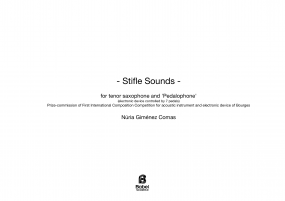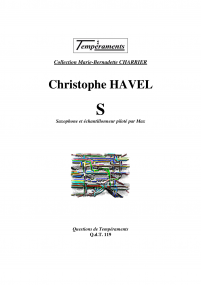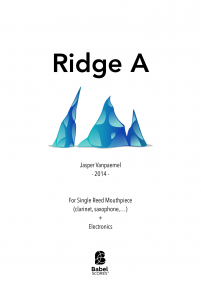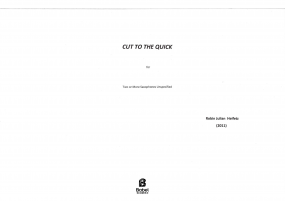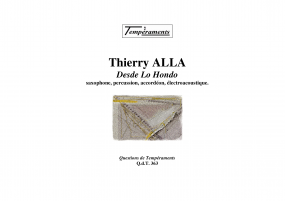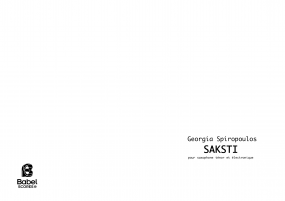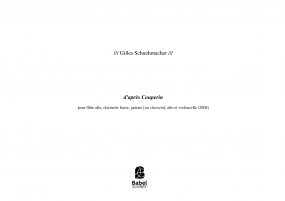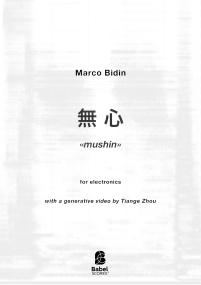La nuit cyclique au jardin de Ts'ui Pên
ISMN : 979-0-2325-3089-5
- Login to create your own lists
La nuit cyclique au jardin de Ts'ui Pên (The Cyclical Night at the Ts'ui Pên Garden) is a piece written for saxophone and live electronics. The subject of this piece is taken from the story written by Jorge Luis Borges, entitled The Garden of Forking Paths. A constant subject in the creations of Borges, he proposes several notions of time, especially its negation. This idea is present in The Garden of Forking Paths, where Ts'ui Pên, governor of his home province, abandons his duties to build an infinite garden from which no one could get out. This garden would destroy the line of continuous time since the events of the past and the future would find themselves infinitely in the present. Inside this labyrinth, time does no longer respond to chronological order: it can be continuous, discontinuous, branch or break eternally. Several notable elements are present in the piece La nuit cyclique au jardin de Ts'ui Pên. Among these we find the central theme, time. For this purpose, the measured and unmeasured tempos are crucial in this composition. Furthermore, the use of several saxophones is a fundamental element of this work. These four instruments are played by the same musician in various sections of the piece and appeal to sounds from the past and the future in the present. All these aspects are reinforced by the live electronics, the Markov sequences and the score following of Antescofo, what makes the specificity of this composition.
Although other pieces for saxophone and score following were composed before La nuit cyclique, this last one introduces something new: the elasticity of time of the soundtrack. In other words, the game of the interpreter allows both to trigger the sounds of the past and the future and have control over their speed.
This piece was created for the concert "Young Talents - composers" of the 2015 Musica Festival in Strasbourg by Andrés Castellani on saxophones and Javier Muñoz Bravo on computer music.
Pages - 58





